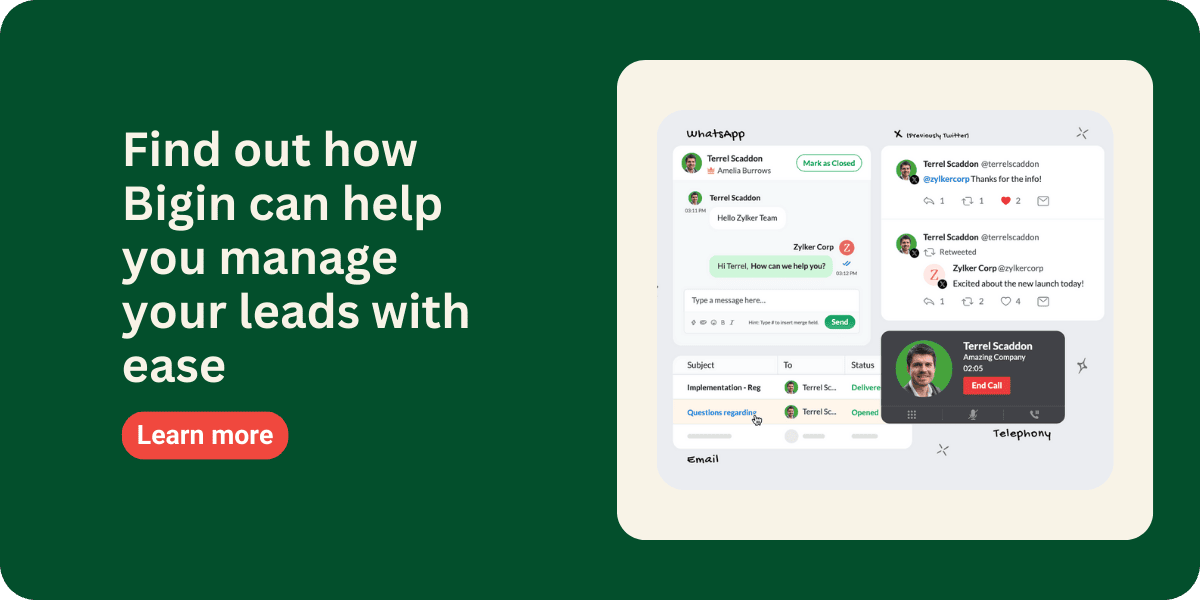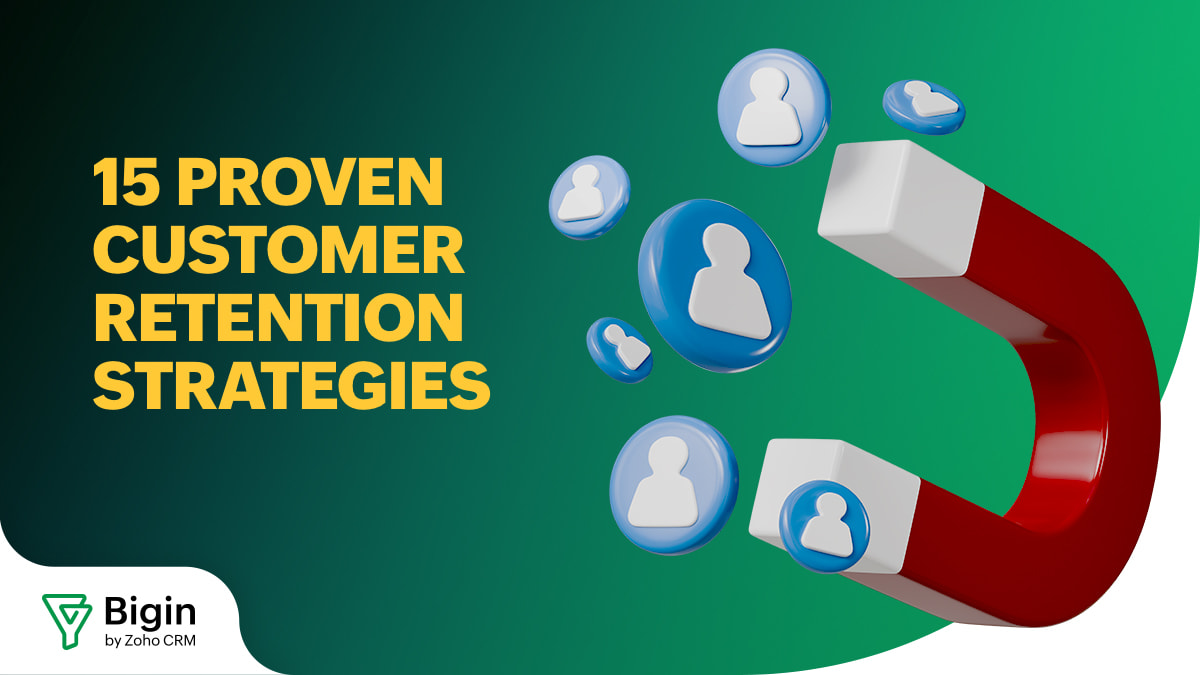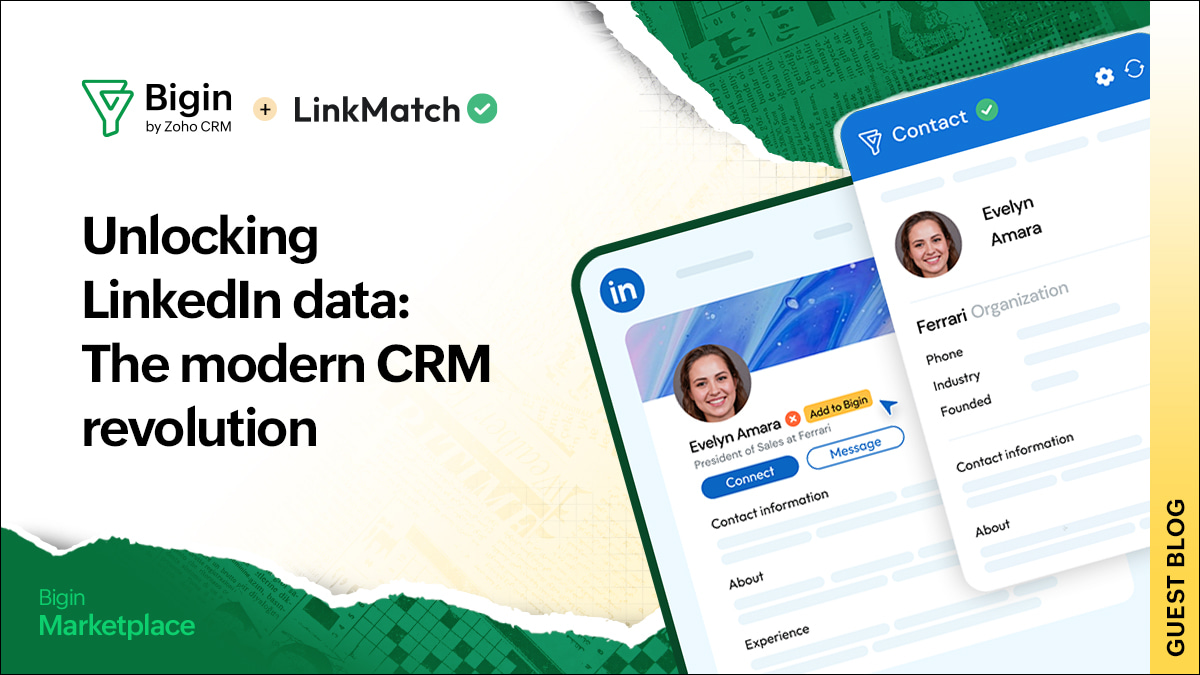Why small businesses need lead management software in 2025 (and how it boosts sales)
- Published : February 10, 2025
- Last Updated : March 20, 2025
- 217 Views
- 4 Min Read

You know that feeling when good leads escape before you even have the opportunity to call them back? Isn't it so frustrating? Perhaps you're dealing with spreadsheets, Post-It notes, and an ad-hoc system that served you well—until it no longer did. If you're considering lead management software or maybe even building one yourself, you're in luck. This post will show you how to approach this process. It'll discuss where to get quality leads, what features to look for, what the lead qualification process looks like, and much more. Learn how close leads without too much friction.
Where do quality leads come from?
Effective prospect management starts with identifying high-potential sources.
Website leads tracking: Capture visitors via contact forms, chatbots, or gated content.
Social media engagement: Monitor comments, DMs, and ad interactions.
Email campaigns: Track opens, clicks, and newsletter signups.
Offline sources: Meet leads at trade shows, through referrals, or by phone inquiries.
However, gathering leads is just the first step. The real challenge lies in tracking sales leads systematically and nurturing them toward conversion.
Understanding lead qualification
Not every lead is ready to buy. A strong lead management system segments prospects using criteria like:
Interest level - Which product/service are they researching?
Budget - Can they afford your solution?
Authority - Are they the decision-maker?
Timeline - When do they plan to purchase?
If they’re not sales-ready, nurture them. Send personalized emails that address their pain points. Retarget them with ads that reflect what they’ve browsed. Share resources that educate, not sell. Over time, you’ll build trust and guide them toward a “yes.”
Why does this matter?
If you skip qualification, you’ll waste time chasing leads that'll never convert—or lose good ones to competitors who nurture better. By qualifying upfront, you focus energy on high-potential prospects while systematically warming up the rest. Your pipeline stays lean and your conversions climb.
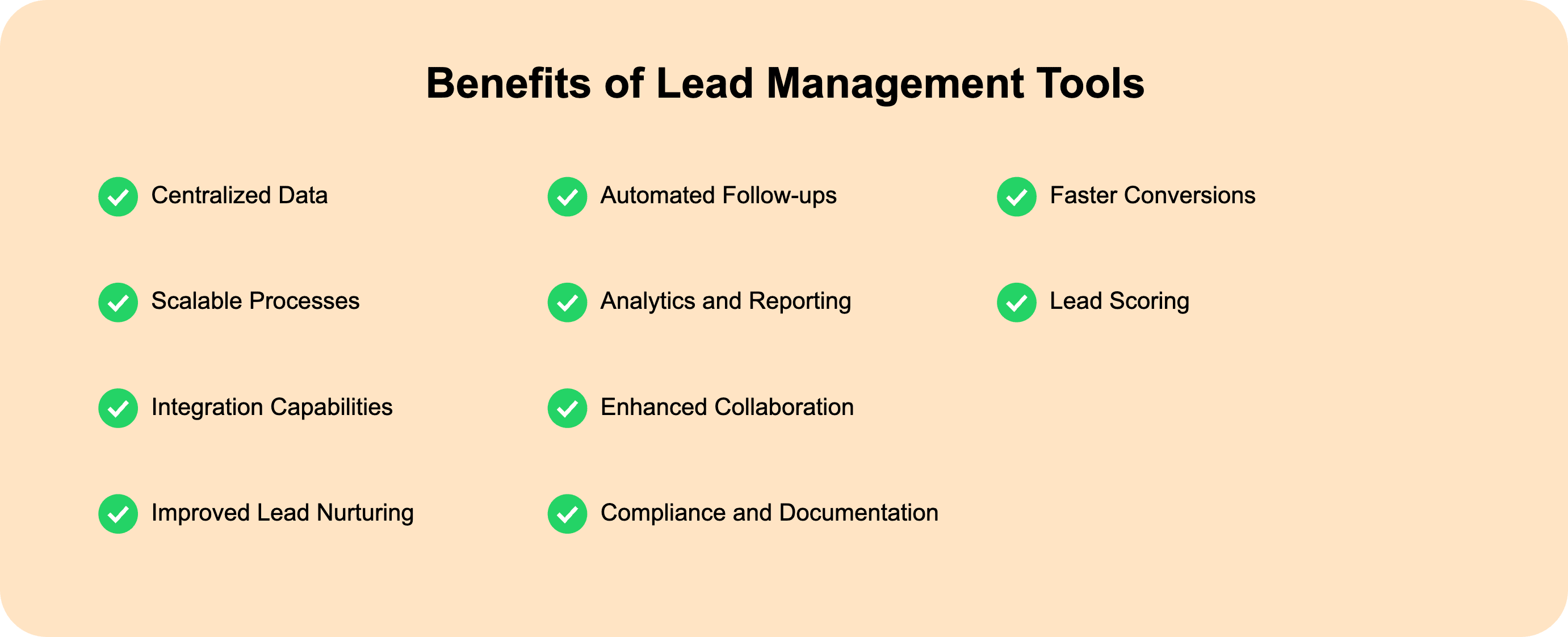
The complete CRM lead management process
A structured workflow is critical for tracking leads effectively.
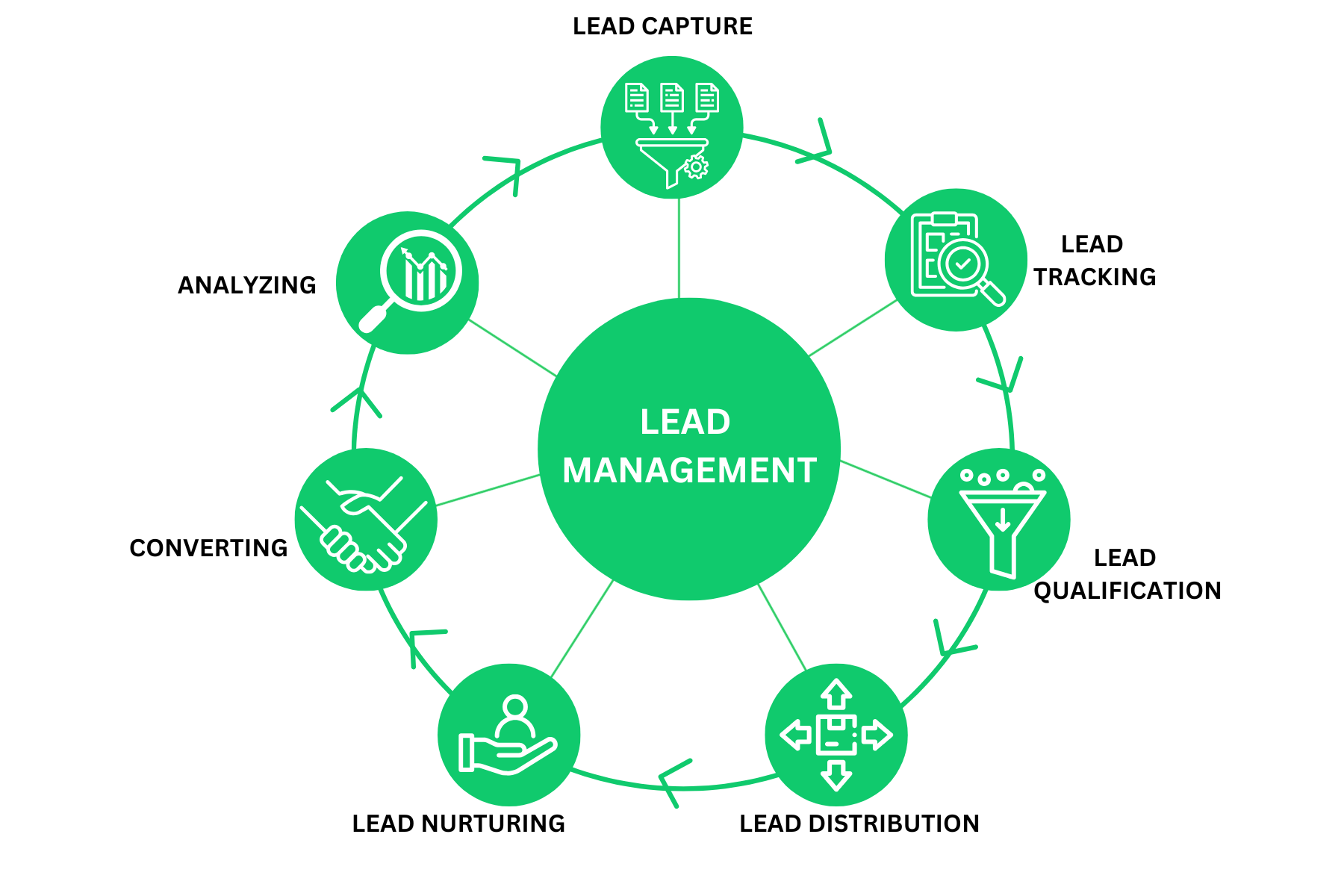
Capture: Use forms, ads, or chatbots to collect prospect data.
Track: Log every interaction in your leads tracker (website visits, emails, calls).
Qualify: Assign scores based on behavior and demographics.
Distribute: Route leads to the right sales representative automatically.
Nurture: Send targeted content (like case studies or demos).
Convert: Close deals and hand off to CRM for post-sale management.
Analyze: Review metrics like lead-to-customer ratio and refine strategies.
Lead management tools and software: Key features to look for
Choosing the right lead management tool requires alignment with your business goals. Prioritize software offering:
Unified lead tracking - Monitor interactions across email, social channels, and the web.
Automated lead scoring - Rank prospects by engagement, budget, or intent.
CRM integration - Sync with the CRM for leads to bridge sales and marketing.
Scalability - Opt for lead management for small business if you’re growing.
Analytics - Measure conversion rates, response times, and ROI.
Popular options include dedicated sales lead management software like Bigin or tools with built-in leads tracker functionality.
CRM for leads management vs. Dedicated lead management tools
While lead management software focuses narrowly on prospecting, modern CRMs for leads management offer a holistic solution that bridges lead management and customer relationship management. Here’s why CRM platforms often outperform standalone tools.
Why using CRMs for lead management is the better option for small businesses
End-to-end visibility: CRMs manage the entire customer lifecycle, from tracking sales leads to post-sale support, eliminating data silos.
Advanced automation: Modern CRMs include lead tracking software features (scoring, routing) and nurture workflows, reducing the need for separate tools.
Unified platform: Instead of juggling a lead management tool and a CRM, teams get a single system for prospect management, sales, and customer retention.
Scalability: CRMs grow with your business, offering modules for lead management for small business needs or enterprise-level pipelines.
Cost efficiency: While lead management software adds another subscription, CRMs consolidate costs with features like email marketing, analytics, and website leads tracking. This is especially important for small business owners.
Feature
Dedicated lead management software
CRM for leads management
Scope
Focused on prospecting
Full customer lifecycle
Integration
Limited third-party apps
Central hub for all business tools
Automation
Basic nurture workflows
Advanced lead-to-customer automation
Analytics
Lead-specific metrics
Cross-department performance insights
Cost
Affordable entry tiers
Long-term ROI via consolidation
For most small businesses, a CRM eliminates the need for a standalone lead management system while providing deeper insights and cross-team alignment.
Maximizing your lead management strategy
Speed matters: Respond to leads within five minutes for ten times higher conversion.
Document everything: Use your leads tracker to log calls, emails, and meetings.
Score leads: Prioritize hot prospects with high intent.
Align teams: Share insights between sales and marketing.
Test and refine: A/B test email subject lines or landing pages.
Ready to transform your sales process?
The right lead management CRM or tool can turn prospects into loyal customers. Whether you’re a startup or established business, streamline your workflow today.
Discover how Bigin can help you boost conversions. What are you waiting for? Give our 15-day free trial a go and find out for yourself!
FAQs
What is lead management?
The process of capturing, tracking, and nurturing potential customers using lead management software or CRM tools until they convert.
Leads vs. customers–what’s the difference?
Leads are potential buyers exploring your offerings; customers have already purchased. Lead management focuses on conversion, while CRM maintains customer relationships.
Why is lead management important?
Prevents lost opportunities, prioritizes high-potential leads with lead tracking software, improves conversions, and shortens sales cycles.
How is pipeline management different?
Lead management handles individual prospects; pipeline management tracks all deals across sales stages using a lead management system.
 Anubhav
AnubhavAnubhav is a product marketer with an insatiable thirst for all things content marketing, technology, and SaaS. His expertise lies in crafting compelling narratives that resonate with audiences and drive business growth. With a deep-rooted interest in entrepreneurship, Anubhav closely follows the latest industry trends and innovations, constantly seeking new ways to elevate marketing strategies.
